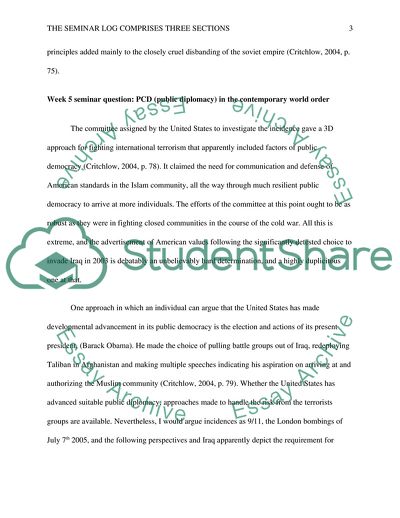Cite this document
(Public and Cultural Diplomacy Literature review Example | Topics and Well Written Essays - 2500 words, n.d.)
Public and Cultural Diplomacy Literature review Example | Topics and Well Written Essays - 2500 words. https://studentshare.org/politics/1772533-the-seminar-log-comprises-three-sections-2150-words
Public and Cultural Diplomacy Literature review Example | Topics and Well Written Essays - 2500 words. https://studentshare.org/politics/1772533-the-seminar-log-comprises-three-sections-2150-words
(Public and Cultural Diplomacy Literature Review Example | Topics and Well Written Essays - 2500 Words)
Public and Cultural Diplomacy Literature Review Example | Topics and Well Written Essays - 2500 Words. https://studentshare.org/politics/1772533-the-seminar-log-comprises-three-sections-2150-words.
Public and Cultural Diplomacy Literature Review Example | Topics and Well Written Essays - 2500 Words. https://studentshare.org/politics/1772533-the-seminar-log-comprises-three-sections-2150-words.
“Public and Cultural Diplomacy Literature Review Example | Topics and Well Written Essays - 2500 Words”. https://studentshare.org/politics/1772533-the-seminar-log-comprises-three-sections-2150-words.


